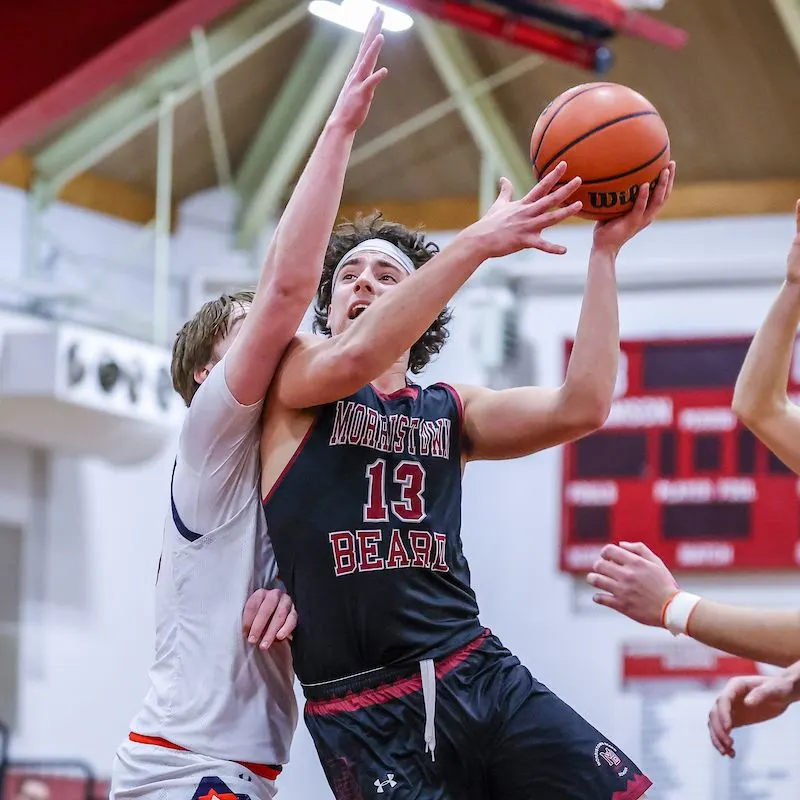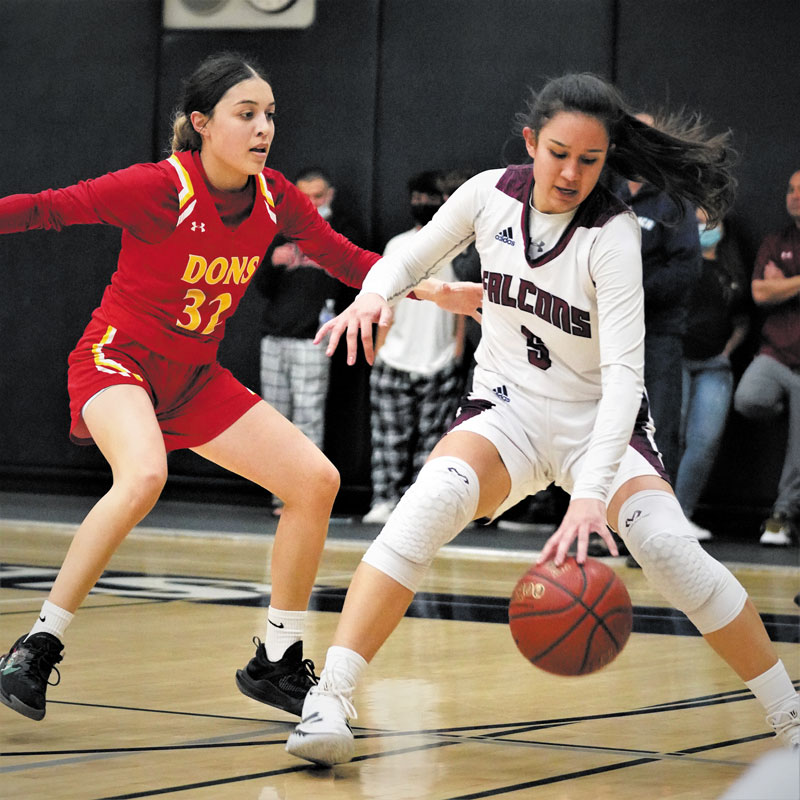I. Introduction

Winter sports play a significant role in high school, offering students the opportunity to engage in physical activities, develop lifelong skills, and foster a sense of teamwork and camaraderie. Participating in winter sports not only promotes physical fitness but also contributes to personal growth and character development. This article will explore the importance of winter sports in high school and the various benefits they provide to student-athletes.
II. Popular Winter Sports in High School
A. Basketball
- Team organization and structure In high school basketball, teams are typically organized into varsity, junior varsity, and freshman teams. Each team has its own coaching staff and practice schedule.
- Basic gameplay and rules Basketball games consist of two teams competing to score points by shooting the ball into the opponent’s basket. The team with the most points at the end of the game wins.
- Skills development and training Basketball players focus on developing essential skills such as shooting, dribbling, passing, defense, and teamwork. Regular practice sessions and drills are conducted to enhance these skills.
B. Ice Hockey
- Team dynamics and positions Ice hockey teams are typically composed of forwards, defensemen, and a goalie. Each position has specific roles and responsibilities on the ice.
- Equipment required and safety precautions Ice hockey players must wear protective gear, including helmets, shoulder pads, shin guards, and skates. Safety measures such as checking opponents within the rules and wearing mouthguards are paramount.
- Strategies and gameplay tactics Ice hockey involves quick gameplay, strategy, and teamwork. Players learn offensive and defensive tactics, power plays, penalty killing, and face-off strategies.
C. Wrestling
- Weight classes and individual competition Wrestling competitions are divided into weight classes to ensure fair matchups based on the participants’ weight. Wrestlers compete individually against opponents in their respective weight class.
- Techniques and training methods Wrestlers focus on learning various grappling maneuvers, takedowns, escapes, and pinning techniques. Training sessions involve physical conditioning, practice bouts, and skill development.
-
Emphasizing discipline and mental toughness Wrestling emphasizes discipline, mental toughness, and perseverance. Wrestlers learn to push through physical and mental challenges, enhancing their resilience both on and off the mat.
III. Planning and Preparation for Winter Sports Season
A. Physical conditioning and strength training
In order to perform at their best during the winter sports season, high school athletes must prioritize their physical conditioning and strength training. This section will delve into the importance of physical fitness and provide tips on how to achieve optimal conditioning.
- Understanding the demands of the sport: Different winter sports require specific physical attributes. For example, ice hockey players need strength and power, while wrestlers need endurance and agility. Understanding these demands will help athletes tailor their conditioning programs accordingly.
- Cardiovascular conditioning: Winter sports often involve intense physical exertion, so developing cardiovascular endurance is crucial. Incorporate activities such as running, biking, or swimming into your training regimen to improve cardiovascular fitness.
- Strength and power training: Building strength and power is essential for winter sports. Incorporate exercises such as squats, deadlifts, and plyometric movements to develop lower body strength. Additionally, incorporate upper body exercises like bench press and push-ups for overall strength.
B. Skill development and practice schedule
In order to excel in winter sports, athletes must focus on skill development and establish a regular practice schedule. This section will delve into effective strategies for skill improvement and provide guidance on creating a practice routine.
- Professional coaching and skill clinics: Seek out professional coaching or attend skill clinics specific to your sport. Coaches can provide expert guidance and help you refine your technique and overall performance.
- Regular practice sessions: Consistency is key when it comes to skill development. Set a regular practice schedule and stick to it. Allocate time each week for drills and exercises that target specific skills needed for your sport.
- Video analysis and feedback: Record your practice sessions or games and analyze your performance. This can help identify areas for improvement and allow coaches or peers to provide constructive feedback.
C. Establishing team camaraderie and communication

A successful winter sports team thrives on camaraderie and effective communication. This section will discuss the importance of teamwork and provide strategies for fostering a positive and cohesive team environment.
- Team bonding activities: Engage in team-building exercises and activities outside of practice to strengthen relationships among team members. This can include social outings, group challenges, or volunteer work.
- Effective communication on and off the field: Encourage open communication among team members, both during practice sessions and outside of sports-related activities. Effective communication enhances teamwork, trust, and unity.
- Leadership development: Foster leadership skills within the team by providing opportunities for athletes to take on leadership roles. Encourage captains or team leaders to lead by example and promote teamwork among their peers.
IV. Balancing Academic Demands with Winter Sports
A. Time management tips
Student-athletes must find a balance between their academic obligations and their commitment to their winter sports. This section will explore effective time management strategies to help athletes excel both in the classroom and on the field.
- Prioritize tasks and set goals: Start each day or week by identifying important tasks or assignments that need to be completed. Create a to-do list and prioritize tasks based on their urgency and importance.
- Create a structured schedule: Establish a weekly or daily schedule that accounts for academic commitments, practice sessions, and study time. Utilize tools such as calendars or digital planners to stay organized and manage time effectively.
- Avoid procrastination: Procrastination can lead to increased stress and poor academic performance. Break tasks into manageable chunks and adhere to self-imposed deadlines to avoid last-minute cramming.
B. Effective study strategies for student-athletes
Successfully balancing academic demands with winter sports relies on employing effective study strategies. This section will explore strategies to help student-athletes maximize their study time.
- Create a distraction-free study environment: Find a quiet space where distractions are minimized. Turn off electronic devices or use apps that block social media during designated study periods.
- Make use of downtime: Utilize breaks between classes, travel time, or waiting periods to review notes or complete small tasks. This allows for more efficient use of time and helps prevent academic overload.
- Develop effective note-taking techniques: Adopt note-taking methods that work best for you, such as Cornell notes, mind maps, or summarizing key concepts in your own words. Reviewing and organizing notes regularly is also essential for retention.
C. Seeking support from teachers and coaches
When balancing academic demands with winter sports, it’s important for student-athletes to seek support from teachers and coaches. This section emphasizes the value of communication and collaboration with educators.
- Openly communicate with teachers: Inform your teachers about your involvement in winter sports and any anticipated conflicts or time constraints. Establish open lines of communication to discuss assignments, deadlines, or any difficulties you may encounter.
- Utilize support systems: Take advantage of resources provided by your school, such as tutoring services, study groups, or academic advisors. These support systems can alleviate academic stress and help you stay on track.
- Maintain regular communication with coaches: Keep your coaches informed about your academic obligations and any challenges you may face. They can offer guidance and support to help you manage your time effectively while excelling in your sport.
V. Sportsmanship and Resilience in Winter Sports
A. Promoting fair play and ethical behavior
Winter sports instill important values such as sportsmanship and fair play. This section highlights the significance of upholding ethical behavior both on and off the playing field.
- Respect opponents and officials: Treat opponents and officials with respect, regardless of the outcome of a game or match. Recognize their efforts and dedication to the sport and maintain a positive attitude.
- Follow rules and regulations: Understand and adhere to the rules and regulations of your sport. Play within the parameters of fair play and avoid any unsportsmanlike conduct.
- Display good sportsmanship: Celebrate successes with humility and demonstrate respect toward all parties involved. Encourage teammates and opponents alike, and appreciate the spirit of competition.
B. Coping with challenges and setbacks
Winter sports present challenges and setbacks that test an athlete’s resilience. This section explores strategies for coping with these challenges and remaining mentally strong.
- Embrace a growth mindset: View challenges as opportunities for growth and learning. Develop a positive attitude toward setbacks, and see them as stepping stones to improvement rather than failures.
- Maintain a strong support system: Surround yourself with teammates, family, and friends who provide encouragement and support during difficult times. Lean on them for emotional support and motivation.
- Practice mental resilience techniques: Utilize mental resilience techniques such as visualization, positive self-talk, and deep breathing exercises to stay focused and motivated. These techniques can help you overcome obstacles and perform at your best.
C. Building resilience and mental toughness
Resilience and mental toughness play a significant role in winter sports. This section focuses on strategies to build and strengthen these qualities.
- Embrace challenges and adversity: Embrace difficult situations as opportunities to grow stronger. Develop a mindset that views challenges as valuable experiences that contribute to personal growth.
- Set small, attainable goals: Break larger goals into smaller, achievable steps. This approach allows for a sense of progress and accomplishment along the journey, boosting resilience and motivation.
- Practice self-care: Prioritize self-care to foster mental and emotional resilience. Engage in activities outside of your sport that contribute to your overall well-being, such as getting enough sleep, practicing mindfulness, and maintaining a balanced diet.
VI. The Role of Coaches and Mentors
A. Guidance and mentorship
Coaches and mentors play a vital role in the development and success of student-athletes. This section discusses the importance of their guidance and mentorship in winter sports.
- Establishing trust and open communication: Cultivate a relationship built on trust, respect, and open communication with your coaches and mentors. Create an environment where you feel comfortable seeking guidance and advice.
- Seek guidance on skill development: Rely on coaches and mentors for training strategies, skill development techniques, and individualized feedback. Their expertise can help you reach your full potential and improve performance.
- Learn from their experiences: Coaches and mentors often have valuable personal experiences and insights. Learn from their successes and failures, and use their wisdom to guide your own journey.
B. Developing teamwork and leadership skills
Coaches and mentors play a crucial role in developing teamwork and leadership skills in student-athletes. This section explores the methods coaches can employ to foster these qualities.
- Team-building exercises: Coaches can organize team-building exercises to strengthen bonds and foster teamwork. These activities can include trust-building exercises, problem-solving challenges, or shared goal-setting sessions.
- Cultivate leadership opportunities: Provide student-athletes with opportunities to develop leadership skills. Encourage them to take on leadership roles within the team, such as team captain or mentor to younger athletes.
- Encourage communication and collaboration: Coaches should emphasize the importance of effective communication and collaboration among team members. Foster an environment where every team member feels comfortable expressing their ideas and opinions.
In the realm of winter sports in high school, planning and preparation, academic balance, sportsmanship, resilience, coach and mentor involvement, and fostering a positive team atmosphere are all crucial components. By focusing on these aspects, student-athletes can excel in their chosen sport, maintain their academic pursuits, develop important life skills, and create memories that will last a lifetime. Winter sports provide a platform for growth, both as athletes and individuals, and the lessons learned on the field can extend far beyond the sporting arena.



